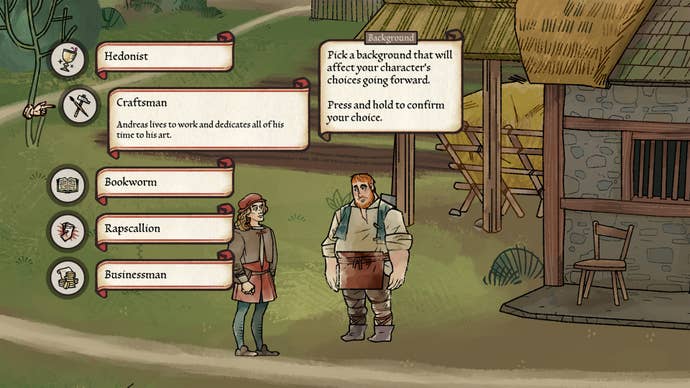It begins with a word.
It begins with a word: Pentiment.
It comes from pentimento, an overpainted image that is becoming visible.

This is itself derived from the Italian, pentirsi, to repent or change ones mind.
Its a rare occasion in which the games title tells you exactly whats coming.
This is emblematic of the confidence with which Pentiment handles its themes.

Or worse: written byHideo Kojima.
Pentiment, however, is a rare game in which balance is achieved.
The conflict between peasants and nobility; between inertia and change; between desire and duty.

All of this focussed on the eternally conflicted Andreas.
Andreas finds himself in Tassing, a landscape constantly at odds with itself.
Throughout three playthroughs, the minutiae of these conflicts engrossed me.
In burly Endris yearning for love.
In the mysterious Martin Bauer.
In the surprising divisions between peasant women and their monastic counterparts like Sister Illuminata.
Thanks to all that, I truly considered the consequences of every action.
But then, thats what makes Pentiment an unusually strong story.
From the name down to the gameplay, the story is laced with it.
Themes so relatable and so pointed from the games beginning.
A beginning that aptly has us rubbing away the surface of the Gospel of John.
Whose first line reads, In principio era Verbum.
In the beginning was the Word.
Because, instructive as the games name is, it is also only the beginning.
The beginning may be the word, Pentiment says, but ultimately there is so much more.